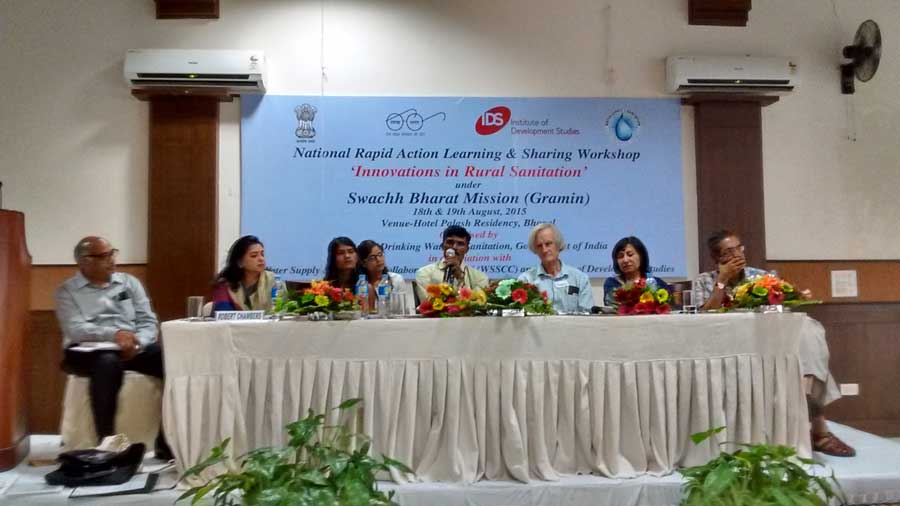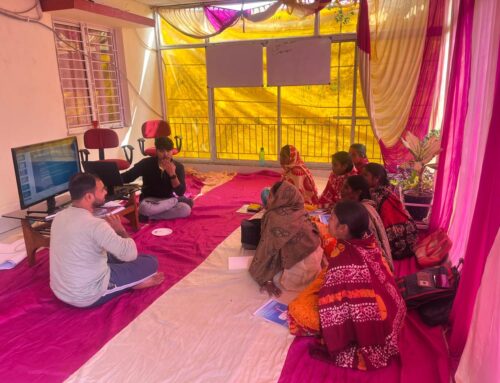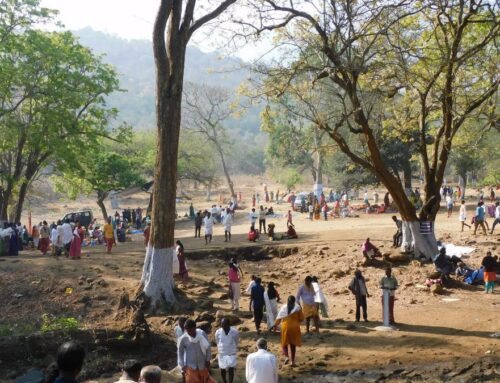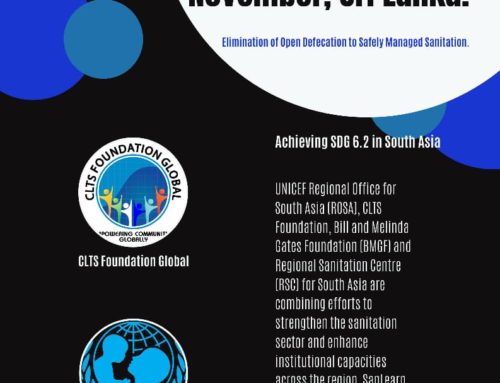
A three-member team from CLTS Foundation participated at the two-day National Rapid Action Learning and Sharing Workshop held at Palash Residency, Bhopal from August 18 -19, 2015. It was organised by the Water Supply & Sanitation Collaborative Council ( WSSCC ) and The Institute of Development Studies (IDS), University of Sussex, UK in association with the Ministry of Drinking Water Supply and Sanitation (MoDWS), Government of India.
Deepak Sanan, Managing Committee Member, CLTS Foundation and Additional Chief Secretary, Government of Himachal Pradesh was invited to speak at the closing session of the first day of the workshop. He spoke about some current trends and thoughts which primarily focus on infrastructure rather than collective behaviour change in sanitation programmes. He said current thoughts such as ‘Build the toilets at first and then change behavior’ and ‘We will trigger demand and then supply the toilets’ are quite problematic. He also congratulated the new breed of administrators for leading commendable efforts in different states using community-led approaches and said that ‘if achieving ODF status is the focus then the toilets will be built by the community themselves’.

Nipun Vinayak, Director, Swacch Bharat Mission said that the MoDWS will support the champions emerging from various states and will take necessary steps to ensure flexibility in their systems. The Swachh Bharat Mission Gramin( SBMG) has already revealed a great variety of approaches and methods innovated by many administrators from the Districts and States. It was very encouraging to see the energy and enthusiasm among many of these officers such as Arti Dogra, former district collector of Bikaner, now Managing Director, Jodhpur Power Distribution Company, Rajasthan; Sachin Jadhav, District Collector, Angul , Odisha; Shanmuga Priya Mishra, CEO Zila Panchayat, Harda, Madhya Pradesh; Nileshkumar Kshirsagar, CEO Jila Panchayat , Raigarh, Chhatisgarh and Priyanka Shukla, CEO Jila Panchayat, Rajnandgaon, Chhatisgarh who having achieved ODF results through the CLTS model are convinced that collective behaviour change is the only way to achieve sustainable change.
Date: August 23, 2015






Leave A Comment